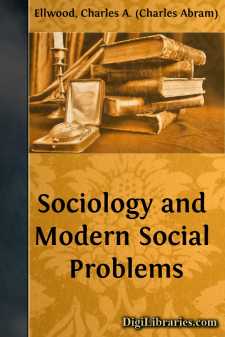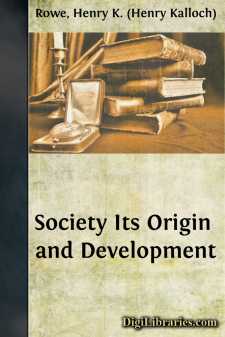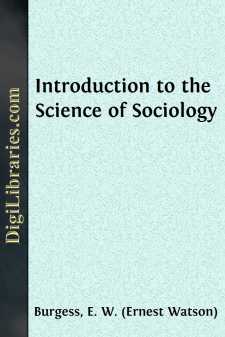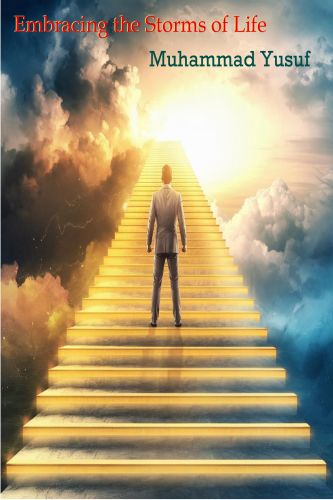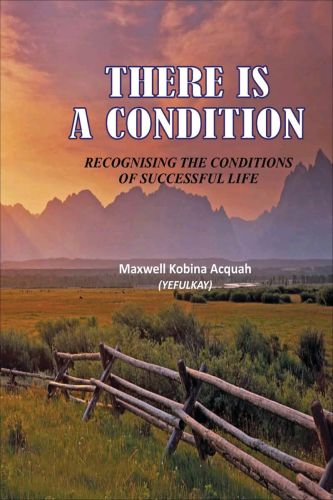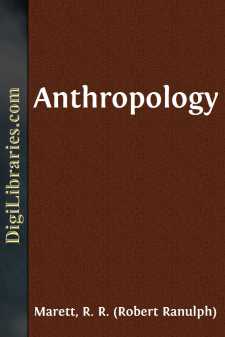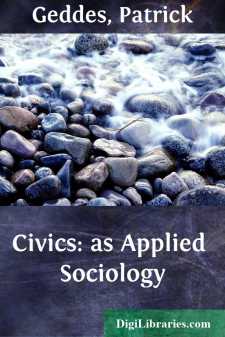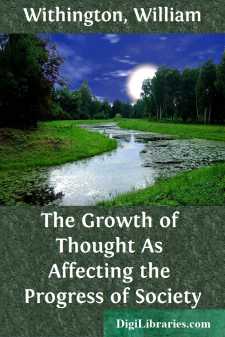Social Science
Social Science Books
Sort by:
CHAPTER I THE STUDY OF SOCIETY What is Society?—Perhaps the great question which sociology seeks to answer is this question which we have put at the beginning. Just as biology seeks to answer the question "What is life?"; zoölogy, "What is an animal?"; botany, "What is a plant?"; so sociology seeks to answer the question "What is society?" or perhaps better, "What...
more...
CHARACTERISTICS OF SOCIAL LIFE 1. Man and His Social Relations.—A study of society starts with the obvious fact that human beings live together. The hermit is abnormal. However far back we go in the process of human evolution we find the existence of social relations, and sociability seems a quality ingrained in human nature. Every individual has his own personality that belongs to him apart from...
more...
PREFACE The materials upon which this book is based have been collected from a wide range of sources and represent the observation and reflection of men who have seen life from very different points of view. This was necessary in order to bring into the perspective of a single volume the whole wide range of social organization and human life which is the subject-matter of a science of society. At the...
more...
by:
Muhammad Yusuf
This novel is based on the philosophy of struggle, hope, perseverance, and success. It will teach readers that life's unfavorable circumstances actually open new paths to success—if we face them with the right mindset.
by:
Maxwell Acquah
THERE IS A CONDITION This book discusses the secret behind the difficulties in life. People are not finding it easy in life, not even the one who claims to be rich or successful in life. Many are blaming GOD for difficulties in their life forgetting the conditions in living a successful life. The struggle of man begins at birth simply because of principles man do not follow. There is a saying that there...
more...
CHAPTER I SCOPE OF ANTHROPOLOGY In this chapter I propose to say something, firstly, about the ideal scope of anthropology; secondly, about its ideal limitations; and, thirdly and lastly, about its actual relations to existing studies. In other words, I shall examine the extent of its claim, and then go on to examine how that claim, under modern conditions of science and education, is to be made good....
more...
by:
Patrick Geddes
INTRODUCTION This department of sociological studies should evidently be, as far as possible, concrete in treatment. If it is to appeal to practical men and civic workers, it is important that the methods advocated for the systematic study of cities, and as underlying fruitful action, be not merely the product of the study, but rather be those which may be acquired in course of local observation and...
more...
Introductory. The meditation on human life—on the contrast between what is, and what might be, on supposing a general concurrence to make the best of things-yields emotions both painful and pleasing;—painful for the demonstrations every where presented, of a love of darkness, rather than light; pleasing, that the worst evils are seen to be so remediable; and so clear the proofs of a gradual, but...
more...
by:
Enrico Ferri
I. My Friends: When, in the turmoil of my daily occupation, I received an invitation, several months ago, from several hundred students of this famous university, to give them a brief summary, in short special lectures, of the principal and fundamental conclusions of criminal sociology, I gladly accepted, because this invitation fell in with two ideals of mine. These two ideals are stirring my heart...
more...
by:
Thomas Clarkson
CHAPTER I. HISTORY OF THE ABOLITION OF THE SLAVE TRADE. No subject more pleasing than that of the removal of evils.—Evils have existed almost from the beginning of the world; but there is a power in our nature to counteract them—this power increased by Christianity.—Of the evils removed by Christianity one of the greatest is the Slave Trade.—The joy we ought to feel on its abolition from a...
more...


